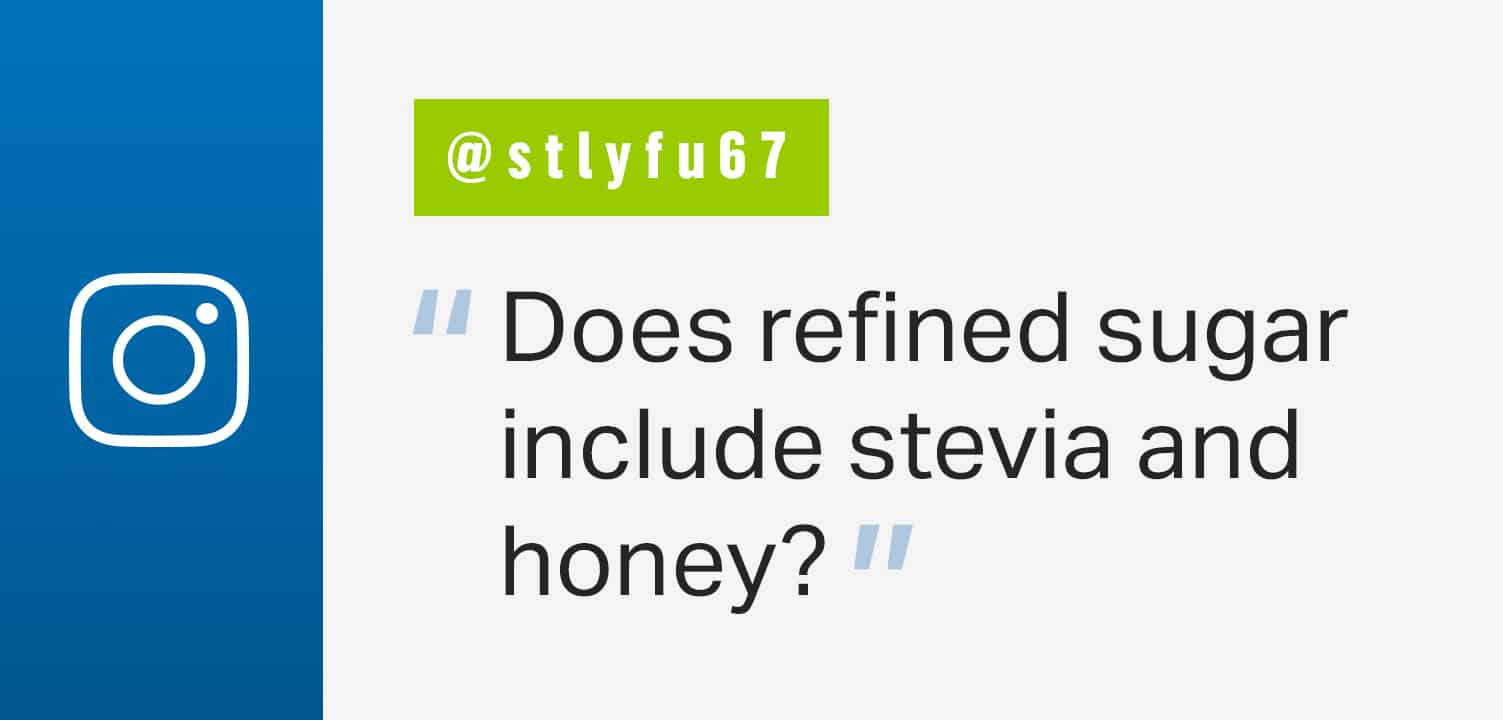

Following a diet high in sugar, especially when combined with low fruit and vegetable intake, is linked to an increased risk of inflammation, chronic disease and some cancers. That’s why the American Heart Association recommends limiting added sugar intake to no more than 9 teaspoons (36 grams) of sugar for men and 6 teaspoons (25 grams) of added sugar for women.
“Refined sugar-free” is a popular buzzword when describing certain foods and recipes. But the term itself, especially when combined with “naturally sweetened” or “no-sugar added,” can be confusing for people trying to cut back on sugar consumption. What’s more, it can be hard to determine where sweeteners like honey and stevia fall on the spectrum.
Here’s what you need to know about various types of sugar and how they play a role in a well-balanced diet.
NATURAL SUGAR
Natural sugars are found in fruit, in the form of fructose, and dairy products, in the form of lactose. When consuming natural sugar found in whole foods, you’ll also get a variety of nutrients, such as vitamins, minerals, fiber (from fruit), protein (in dairy) and antioxidants. The body digests natural sugars, and the foods they are found in, differently and typically a bit slower than refined sugars, resulting in less of a blood sugar spike and a higher level of satiety after eating.
Honey and maple syrup are considered natural sugars and they contain small amounts of nutrients the body can use, such as vitamins and antioxidants. While they are not refined sugars, honey and maple syrup can also be used to sweeten foods in the same way as refined sugars (as added sugar).
REFINED SUGAR
Refined sugar is sugar that has been processed from its natural form, such as sugar derived from sugar cane, sugar beets and corn. Examples of refined sugar are regular table sugar, brown sugar, high-fructose corn syrup and evaporated cane juice. These sugars are often used to sweeten things like soda, juice, baked goods and may even be added to other foods, like tomato sauce, condiments and some types of bread. Refined sugars typically do not contain other nutrients, like fiber, vitamins and minerals, and are digested rapidly. This leads to a quick spike in blood sugar and a lack of satiety, leaving you feeling sluggish and hungry again soon after eating.
READ MORE > ESSENTIAL GUIDE TO SUGAR
ADDED SUGAR
Added sugar is just how it sounds — sugar that is added during cooking, baking, processing or production — usually to make the food taste more palatable. This can be in the form of refined sugar, such as white sugar, high-fructose corn syrup, brown sugar, evaporated cane juice or the many other terms sugar falls under. It can also be in the form of natural sugar, like honey or maple syrup. No matter the type of added sugar, sugar is still sugar. It’s converted by the body into glucose and used as energy (or stored) as fat to provide energy later on.
WHAT ABOUT STEVIA?
Stevia is considered a sugar substitute, as it contains no sugar or calories. Although stevia is made from a plant (unlike other sugar substitutes made in labs), it is highly processed and can be a considered refined product. It is not refined sugar, however, because it’s not sugar. However, because Stevia is highly processed and its long-term effects on health are still somewhat unknown, it is recommended to limit the amount used. Moreover, some research shows frequent use of artificial sweeteners like stevia can negatively affect gut health and lead you to crave sweet foods.
THE BOTTOM LINE
It’s always helpful to be an informed consumer, and review ingredient labels to get an idea of what contains refined or added sugars and what doesn’t. Even though we are bombarded with messages vilifying any and all products containing refined sugar, it’s not necessary to avoid them completely. Instead, keep the bigger dietary picture in mind. If you are following a well-balanced diet with a variety of fruits, vegetables, whole grains and lean proteins, there is room for a cookie or a slice of cake when you want it.




